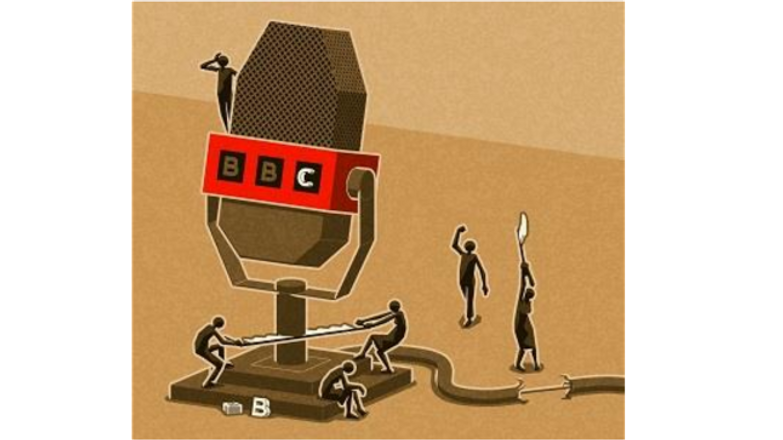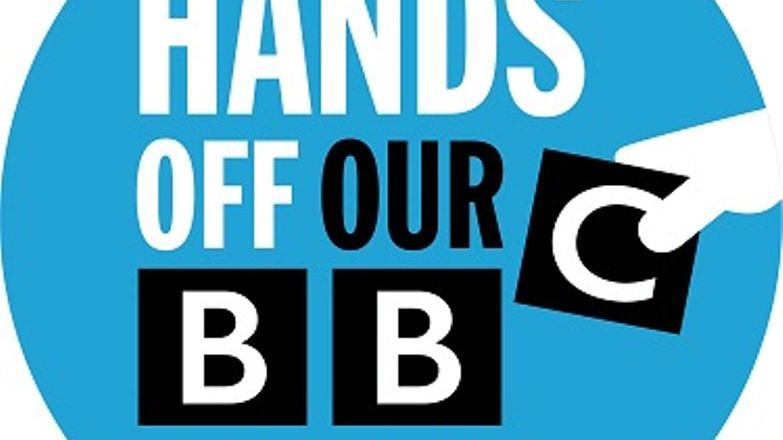Local News Matters - Does it?
Dominic Blake looks back at 20 years with the BBC.
by Dominic Blake, Senior Reporter and FOC of the BBC Radio Solent chapel.
As I write this the Prime Minister is announcing new measures to delay the impact of coronavirus. My local hospital is rapidly reconfiguring services. Cruise ships are coming alongside. Flights are being cancelled.
Our local airport has already seen its main airline go bust. Local schools are making plans to give lessons online in the event of closure. Supermarkets are struggling to keep shelves stocked as people panic-buy.
In the words of the BBC's director general Tony Hall, it is in these "extraordinary and challenging times" that "the country needs us most."
Over the next few weeks and months the BBC will have a vital role, using local radio stations, regional TV programmes and its network of online, digital and social media platforms to let people know what is happening in their area and how they can protect themselves and others.
The pandemic is a truly rare event, but as I look back on my years as the BBC's man in Portsmouth there have been many moments when local news services have proved to be invaluable.
The shipyard is suddenly shut down. Thousands of people are stranded on a snow-bound motorway. A tower block is being evacuated after a 500lb bomb is dug up outside – big enough to flatten the whole building.
When things go suddenly wrong, there's usually a local reporter in the thick of it, like the football derby, which turned into a full-scale riot.
A crowd of 400 tried to attack away supporters and ended up in a running battle with the police. Patrol cars were wrecked. Police horses were galloping down the streets and police dogs were getting their teeth into the riotous assembly.
At times I had to wrestle to keep hold of my gear, but the sounds of the brawling, bricks, bottles and barking were tremendous and so was our coverage of an event which saw people shut in their homes until order was restored many hours later.
We often report on events which are too shocking or tragic to ignore. A murder hunt is launched after body parts start turning-up in neatly wrapped packages. The body of a new-born baby is abandoned on a cobbled side street. People want to know what's going on.
Listeners also turn to us for help. The mum whose son has vanished on a night out, the postman declared unfit for work by the same company which then rejects his claim for benefits. The farmer prosecuted for having noisy pigs by the same council which put a new housing estate on his doorstep. We give them all a voice.
Local news also matters to people who care about the environment. When toxic fumes are blighting the city centre or heavy metals are found in school playing fields, we are there to find out and to ask the important questions.
We show how rising sea levels will affect coastal communities and tell them about plans which will leave some without protection. We explain how new housing targets and changes to planning laws are making it possible for developers to swallow-up the precious green spaces which separate our towns and cities.
We confront the water company which dumps raw sewage into the harbour. We explain how nitrates seeping into the Solent are causing dense algae to grow, damaging marine life and the protected habitants of rare birds.
We report on climate change and are out in the floods and wild storms which are increasing in both power and frequency.
Local reporters look at issues affecting the whole community.
The pressure on the local hospital as it struggles with hundreds of nurse vacancies. The strain on police officers as the blue line is stretched even thinner, and the big budget cuts facing fire and rescue services.
Local reporters cover courts, councils and party politics, helping to promote democracy and accountability.
We take on complex cases. Like the dinner lady who claimed that meat unfit for human consumption was being mixed into school dinners, before dying from a prion disease herself. Or a naval rating who turned out to be a serial killer, and the long search for missing victims.
Sometimes investigations go on for years. One of them involves The Gosport War Memorial Hospital which was suspected of overdosing elderly patients. My involvement began with a few family interviews, and I am still working on it 20 years later.
A breakthrough came in 2018 when an independent inquiry concluded that 656 patients were sent to an early grave after being given dangerous doses of diamorphine which they didn't need.
When the story broke, the wider BBC had a local reporter to rely on. I did more than 20 live interviews which were broadcast around the world. The BBC's Panorama programme then gave me the chance to investigate further and a major criminal inquiry is now underway into the deaths which took place in the late 1980s and 1990s.
These things would not have been possible without local reporters working across the industry, living within and deeply connected to their local communities, but we are an endangered species.
The newspaper office where I began my career now stands empty, the few remaining staff having moved to smaller premises. Austerity measures have also hit the BBC, forcing it to close many of its district offices.
A five-year licence fee freeze led to a huge fall in real-terms funding. It's had to take on extra costs and the Government's decision to stop paying for TV licences for over 75s looks likely to leave the BBC with another £200m shortfall.
And now the Department for Culture Media and Sport is consulting on plans to decriminalise non-payment of the TV licence fee.
While the number of people prosecuted is tiny, the lack of adequate enforcement options could cost the Corporation a further £200 to £500m making sweeping cuts inevitable, and local services unsustainable.

NUJ response to DCMS consultation on decriminalising TV licence evasion
NUJ responds to "deliberate and ideologically motivated act of sabotage".

Hands Off Our BBC
Why we need to promote & protect the BBC and public service broadcasting
